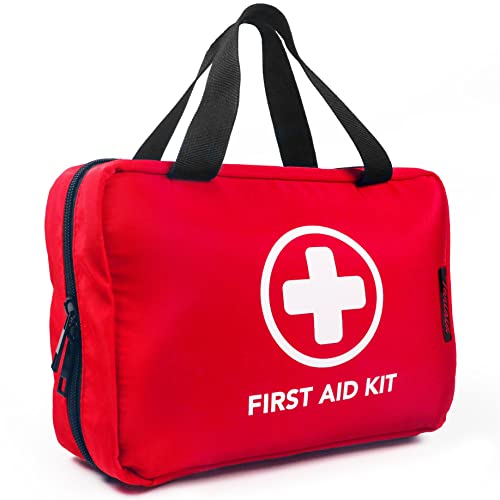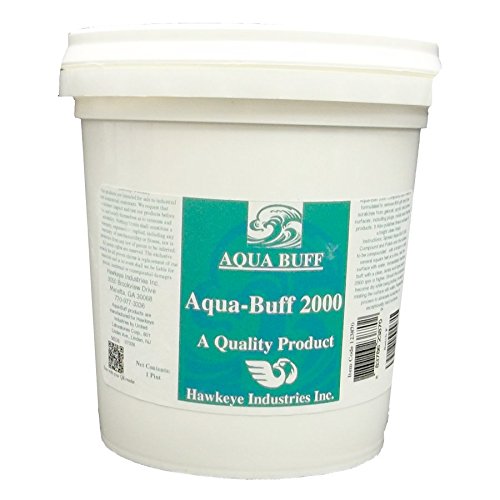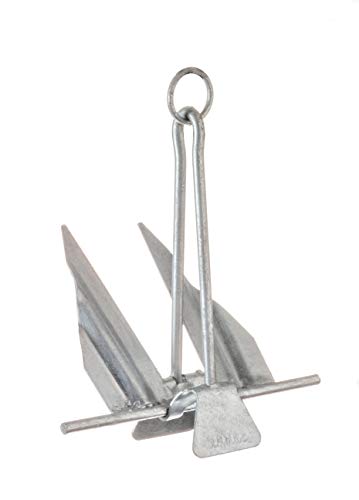How many are using lithium? I recently received a good deal on a reputable company and am giving it some serious thought. I am now in a position of needing a new battery, because one of a pair was broken, the handle came off about knee high. This leaves me with one good battery, about two years old and another four years old. I am not going to get a new one for my 24 volt Terrova, as the older one will wear or draw down the new one. So, Lithium ion batteries are now on my radar.
You are using an out of date browser. It may not display this or other websites correctly.
You should upgrade or use an alternative browser.
You should upgrade or use an alternative browser.
Lithium batteries
- Thread starter Vader809
- Start date

Help Support TinBoats.net:
This site may earn a commission from merchant affiliate
links, including eBay, Amazon, and others.
MrGiggles
Well-known member
Been considering it more and more, but for me they are just too expensive to justify at the moment. The weight is not a huge consequence in my boat, and the Everstart 29DCs I run now last a long time and are 1/5 of the price.
The way I see it, lithiums would need to last 20 years or longer for them to pencil out, being 5-8 times the cost of lead-acid.
The weight savings are certainly desirable in smaller boats, and you will get a little bit more capacity out of them.
The way I see it, lithiums would need to last 20 years or longer for them to pencil out, being 5-8 times the cost of lead-acid.
The weight savings are certainly desirable in smaller boats, and you will get a little bit more capacity out of them.
They are pricey. Weight is definitely a problem both for myself and my boat. As stated, If I buy a new wet cell, I'll have a mix of batteries in different stages of life. I can use what I have for electronics and some other stuff. But my older battery has a few years on it. And with a shortage of the same batteries, I'm not sure of others. If I can get the same offer I was quoted three weeks ago I will buy them, and they are compatible with my onboard charger. May be the last batteries that I buy.
MrGiggles said:Been considering it more and more, but for me they are just too expensive to justify at the moment. The weight is not a huge consequence in my boat, and the Everstart 29DCs I run now last a long time and are 1/5 of the price.
The way I see it, lithiums would need to last 20 years or longer for them to pencil out, being 5-8 times the cost of lead-acid.
The weight savings are certainly desirable in smaller boats, and you will get a little bit more capacity out of them.
Depends on how you use the batteries. For me, the initial outlay is big but in the long run would cost me a lot less money, which is why I am shopping for them now. I use my 36volt Ulterra to coldwater fish a lot different than most you guys that mostly warmwater or fish in the saltwater. I use it as an autopilot and speed control device in harmony with my gas kicker for thrust. Because of that, I tend to deep discharge my batteries almost every time I go fishing. Deep discharging wet cell batteries is very bad for them. I go through a set of 3 group 31 lead acid batteries in about 18 months because of how much I abuse them. I can run them longer than 18 months if I am willing to accept much shorter run times- which I don't. I generally buy Interstate batteries, they are $180 each. Doing the math on 10 years of Interstate batteries, replacing all 3 of them every 18 months or so is approximately $3600 worth of batteries over the course of 10 years.
The group 31, deep cycle, wet cells I use are rated for about 105 ah each. Wired in series for 36v I remain at 105ah approximately. So if I use that as a benchmark, the 100ah lithium batteries I see that are capable of being wired in series run about $899 each. The ones I've been looking at carry a 10 year warranty and are rated to 6000 charge cycles (way more than I'd use in 10 years and probably more like 20 years). So I'm looking at less than $2700 for 10 years of batteries.
There are some very appealing traits to lithium power other than just weight for a trolling motor especially:
-Lithium batteries do not suffer if they are deep discharged below 50%. So I can pretty much drain them and not worry about ruining them. They can also be charged or discharged partially without any negative performance or longevity. They are very forgiving to abuse.
-Lithium power is not the same as wet cell power. Not even AGM's are close to being equivalent in how much power they provide. This is hard to explain without getting really technical, but the fact is that 100ah of wet cell batteries is more equivalent to 60ah of lithium power. Your run times will be much longer with equivalent amp hour ratings between wet cell and lithium.
-Lithium batteries are digitally managed by a BMS (battery management system), and because of this the power is much more stable than wet cell power. The BMS is designed to deliver the same exact voltage 100% of the time it's in operation unlike wet cells. Wet cell batteries continually lose voltage until they finally reach zero voltage. Because of this BMS it's also possible to know exactly how much power has been used and is left to use. I would really like a 100% accurate battery gauge unlike wet cells where the resting voltage on the average meter can be deceiving. With lead acids you pretty much need a load testing battery meter, and even then it's not 100% accurate.
There are certainly some disadvantages, the most of which is initial cost, but doing the math it's FAR more economical using lithium power over the long haul. The other big disadvantage is that the BMS will instantly cut power when the available voltage range has been used, whereas a wet cell it would still deliver power, it would just be weak. They also can't be charged in the cold unless it's a certain kind of battery with an integral heater.
Anyway, that's the math I've done, and I'm now shopping for some lithium batteries.
MrGiggles
Well-known member
jethro said:MrGiggles said:Been considering it more and more, but for me they are just too expensive to justify at the moment. The weight is not a huge consequence in my boat, and the Everstart 29DCs I run now last a long time and are 1/5 of the price.
The way I see it, lithiums would need to last 20 years or longer for them to pencil out, being 5-8 times the cost of lead-acid.
The weight savings are certainly desirable in smaller boats, and you will get a little bit more capacity out of them.
Depends on how you use the batteries. For me, the initial outlay is big but in the long run would cost me a lot less money, which is why I am shopping for them now. I use my 36volt Ulterra to coldwater fish a lot different than most you guys that mostly warmwater or fish in the saltwater. I use it as an autopilot and speed control device in harmony with my gas kicker for thrust. Because of that, I tend to deep discharge my batteries almost every time I go fishing. Deep discharging wet cell batteries is very bad for them. I go through a set of 3 group 31 lead acid batteries in about 18 months because of how much I abuse them. I can run them longer than 18 months if I am willing to accept much shorter run times- which I don't. I generally buy Interstate batteries, they are $180 each. Doing the math on 10 years of Interstate batteries, replacing all 3 of them every 18 months or so is approximately $3600 worth of batteries over the course of 10 years.
The group 31, deep cycle, wet cells I use are rated for about 105 ah each. Wired in series for 36v I remain at 105ah approximately. So if I use that as a benchmark, the 100ah lithium batteries I see that are capable of being wired in series run about $899 each. The ones I've been looking at carry a 10 year warranty and are rated to 6000 charge cycles (way more than I'd use in 10 years and probably more like 20 years). So I'm looking at less than $2700 for 10 years of batteries.
There are some very appealing traits to lithium power other than just weight for a trolling motor especially:
-Lithium batteries do not suffer if they are deep discharged below 50%. So I can pretty much drain them and not worry about ruining them. They can also be charged or discharged partially without any negative performance or longevity. They are very forgiving to abuse.
-Lithium power is not the same as wet cell power. Not even AGM's are close to being equivalent in how much power they provide. This is hard to explain without getting really technical, but the fact is that 100ah of wet cell batteries is more equivalent to 60ah of lithium power. Your run times will be much longer with equivalent amp hour ratings between wet cell and lithium.
-Lithium batteries are digitally managed by a BMS (battery management system), and because of this the power is much more stable than wet cell power. The BMS is designed to deliver the same exact voltage 100% of the time it's in operation unlike wet cells. Wet cell batteries continually lose voltage until they finally reach zero voltage. Because of this BMS it's also possible to know exactly how much power has been used and is left to use. I would really like a 100% accurate battery gauge unlike wet cells where the resting voltage on the average meter can be deceiving. With lead acids you pretty much need a load testing battery meter, and even then it's not 100% accurate.
There are certainly some disadvantages, the most of which is initial cost, but doing the math it's FAR more economical using lithium power over the long haul. The other big disadvantage is that the BMS will instantly cut power when the available voltage range has been used, whereas a wet cell it would still deliver power, it would just be weak. They also can't be charged in the cold unless it's a certain kind of battery with an integral heater.
Anyway, that's the math I've done, and I'm now shopping for some lithium batteries.
This is a pretty good example of why everyone's situation is different. Jethro's math is sound, worth every penny to him, but not to me.
You'll just need to evaluate how you like to fish, how long your trips last, how how long your current batteries last, how much the weight savings will benefit you, etc.

$23.88 ($23.88 / Count)
$26.88 ($26.88 / Count)
First-Aid-Kit-for-Car-Home-Travel-Camping-Businesses, 263pcs Compact Waterproof Hard Case, Public Emergency All Purpose Medical Kit - Perfect for Survival, Vehicles,Boat, Sports, Hiking (PUMIER)
Pumier Medical

$29.86 ($4.59 / Ounce)
Hy-Poxy H-455 Alumfast 6.5 oz Rapid Cure Aluminum Putty Repair Kit
Amazon.com

$181.65
$267.79
Seachoice Folding Deck Chair, White, Marine Vinyl, Folds For Easy Storage
Amazon.com

$58.86 ($5.35 / Fl Oz)
$64.99 ($5.91 / Fl Oz)
Rust-Oleum 207013 Marine Boat Bottom Antifouling Paint, 1 Quarts (Pack of 1), Blue, 11 Fl Oz
Vera Tools

$104.98 ($104.98 / Count)
Ever-Ready Industries Premium Trauma First Aid Kit for Outdoors, Workplace, and Home - Exceed OSHA Guidelines and ANSI 2009 Standards - 240 Pieces - Includes Bonus Travel Kit
EVER-READY INDUSTRIES

$29.39
$34.59
Seachoice Cast Aluminum “S” Dock Cleat, Corrosion Resistant Aluminum, 12 in.
Amazon.com

$24.50
SÜA - Aluminum E4043 Stick Electrode Rod 1/8" x 14" - (0.5 Lb = 16 Rods)
MUNDAKA TECHNOLOGIES, INC.

$37.00
$41.11
STAR BRITE Telescopic Floating Extend-A-Brush Quick-Connect Handle with Boat Hook Attachment, 3'-6' (040054)
Amazon.com

$11.25
$13.23
Extreme Max 5001.6068 Aluminum Air Gauge Pouch Holder for Enclosed Race Trailer, Shop, Garage, Storage, Silver
Amazon.com

$49.89 ($49.89 / Count)
$65.98 ($65.98 / Count)
Poygik Premium 420 Piece Large First Aid Kit for Home, Car, Travel, Camping, Truck, Hiking, Sports, Office, Vehicle & Outdoor Emergencies - Emergency Medical Kits, Businesses & Home Medical Supplies
POYGIK

$45.99 ($0.14 / Count)
$49.99 ($0.15 / Count)
330 Piece First Aid Kit, Premium Waterproof Compact Trauma Medical Kits for Any Emergencies, Ideal for Home, Office, Car, Travel, Outdoor, Camping, Hiking, Boating (Red)
THRIAID
Similar threads
- Replies
- 207
- Views
- 25K











































